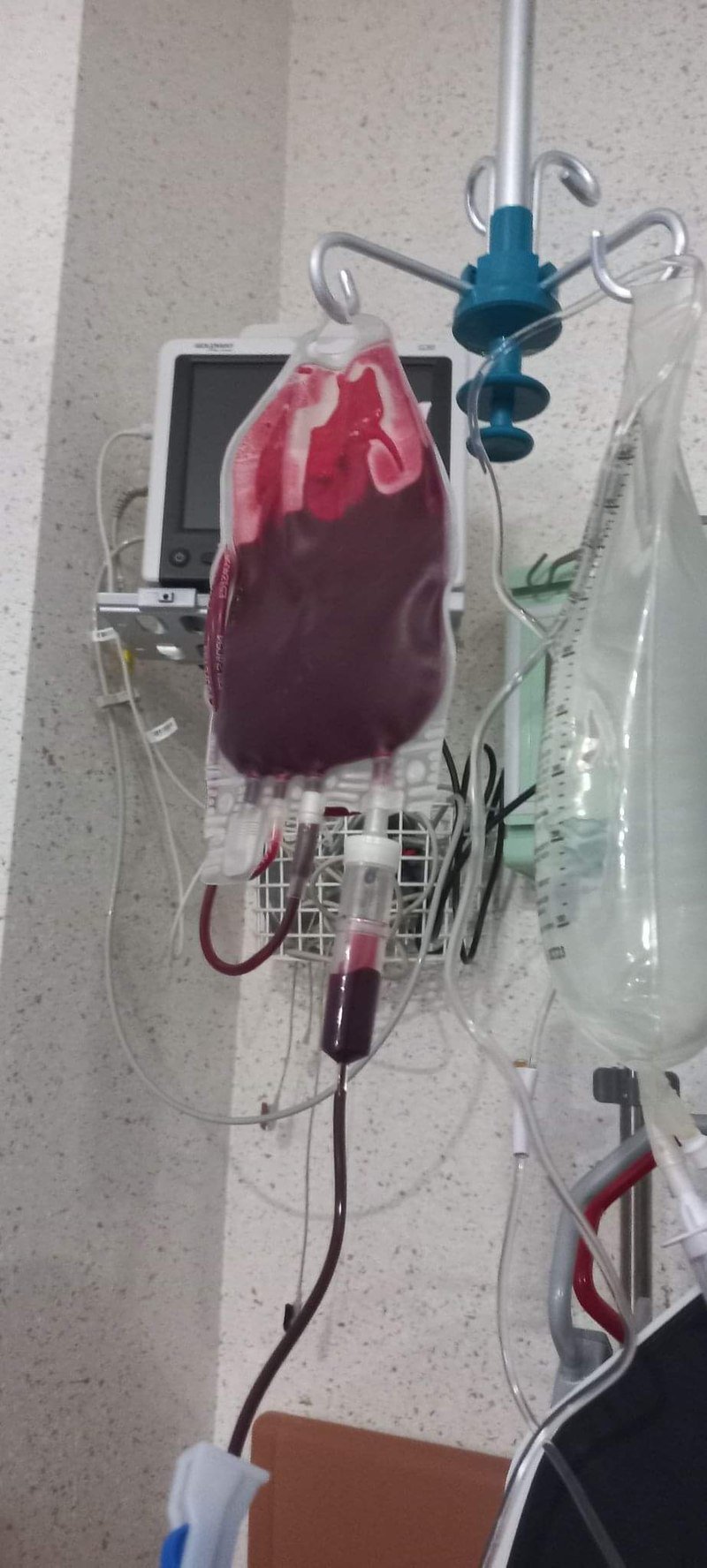Chris Powell: Hoping for a reality transfusion about medical debt
— Photo by SantyBoyMX
MANCHESTER, Conn.
Connecticut Gov. Ned Lamont is acting as if he has a magic wand that can eliminate $650 million or more in medical debt owed by unfortunate state residents. He has been waving that wand for more than a year and waved it again the other week in his address to the new session of the state General Assembly. The magic is taking longer than expected.
The idea is for state government to pay $6.5 million to a charitable organization that purchases uncollectible medical debt from hospitals, whereupon the charity will offer the hospitals 1 cent per dollar of debt and the hospitals will agree to sell at that rate. Then the charity will inform debtors that they are off the hook.
But society won't be off the hook. For medical debt won't really be extinguished at all by this mechanism but merely transferred -- transferred to everyone else who uses hospitals. Indeed, uncollectible medical debt is already effectively transferred to the rest of hospital patients, private insurers and government insurers through the higher rates hospitals need to keep operating. Services have been provided without payment and their costs have to be recovered somehow.
While hospital rates must be negotiated with insurers and the government, as vital public institutions the hospitals can't be allowed to fail. State government is already deeply involved in negotiations to arrange Yale New Haven Health's purchase of three hospitals looted by the predatory investment company that acquired them several years ago -- Waterbury Hospital, Manchester Memorial Hospital and Rockville General Hospital. A direct or indirect subsidy to Yale from state government may be necessary.
As a practical matter most hospitals in Connecticut are already government agencies, with the government controlling most of what they do, either through statute, regulation, or insurance and reimbursement rates. Just this week the state Office of Health Strategy ordered Sharon Hospital not to close its money-losing maternity ward. A state government that claims the power to order a hospital to operate a maternity ward can claim the power to order forgiveness of medical debt and set debt forgiveness terms.
Key questions about the governor's debt forgiveness idea remain to be answered.
Will hospitals sell much of their debt so cheaply? They haven't said.
Will government-facilitated forgiveness of medical debt incentivize more people to stiff the hospitals serving them? That seems likely, since the proposed income limits for people qualifying for debt forgiveness are far above poverty thresholds.
Perhaps most important, since state government already has such power over hospitals, what's the need for a charitable organization to serve as intermediary in debt forgiveness?
The answer seems to be to provide political cover and obscure what will be going on -- the transfer of debt from individuals to the public and the concealment of more of the cost of government in the cost of living.
If state government arranged medical debt forgiveness and qualifications directly, by statute or regulation, the program would compete directly and clearly with all other demands on state government's finances. Every state budget might be forced to determine how much medical debt is to be forgiven each year.
Instead an intermediary would disperse the expense of debt forgiveness in thousands of transactions, distributed unequally among hospitals, which in turn would distribute the expense unequally in hundreds more transactions with insurers, government agencies, and hospital labor contracts. Political responsibility and blame would land mainly on hospitals.
Why does medical-debt relief need such subterfuge? For the problem is a terrible consequence of the country's medical insurance system, whose creakiness is exposed every day by "Go Fund Me" or similar campaigns on behalf of people with catastrophic injuries or diseases whose treatment costs far exceed any insurance coverage.
Though individuals or families may be blameless, just victims of bad luck, medical debt can follow them for lifetimes, ruining their credit.
Government is supposed to do for the people the crucial things they can't do for themselves. Covering medical care in catastrophic circumstances should be one of them. Let it be done directly, frankly, and without apology.
Chris Powell has written about Connecticut government and politics for many years (CPowell@cox.net).
Chris Powell: Medical debt doesn’t vanish; graffiti causes hysteria
MANCHESTER, Conn.
Like the rest of the country, Connecticut is full of people who can't afford their hospital bills. These people may have medical insurance with high deductibles or have exhausted their coverage because of chronic ailments. While nobody is going to prison for medical debt, it can impair credit records and hold people back in life, especially people who were poor to begin with.
Hospitals are often ready to sell the least collectible of their patient debts for a tiny fraction of their nominal value. So with its new budget state government is joining a movement to extinguish the medical debts of people who probably will never be able to repay them. The budget include $6.5 million for distribution to nonprofit organizations that buy medical debt from hospitals and then cancel it. Advocates of the appropriation, including Gov. Ned Lamont, think it might eliminate as much as $650 million in medical debt to hospitals in Connecticut.
While this undertaking is well worth a try, journalism about it has been superficial to the point of misleading. For the debt involved here isn't really being eliminated at all, merely transferred. Indeed, in effect the debt already has been transferred back to the hospitals that have been carrying it. It has been built into hospital operating costs and is being recovered either through efficiencies at the hospitals or higher charges to medical insurers and patients who pay for themselves.
Like nearly everything in medicine, medical-debt-elimination programs are mechanisms of cost shifting. Medical insurers negotiate lower rates with hospitals, causing them to reduce costs or shift them to the less insured. The federal government medical-insurance programs, Medicare and Medicaid, pay less than what hospitals consider the full cost of treatment, and so hospitals must economize again or recover the government discounts with higher charges elsewhere.
Hospitals cannot operate at a loss for long, and if government wants them to stay in business, it has to subsidize them directly or indirectly, as by increasing government insurance payments. If government pays, then all taxpayers do, along with countries that buy the federal government's apparently infinite debt.
Medical care isn't ever really free, and medical debt can't simply be written off. Someone always will be paying for the people who don't pay. Such cost shifting is inevitable in any jurisdiction that won't let people die in the street, but it's not a magic wand.
Medical-debt elimination will be a boon to hard-luck cases and the poor, but it won't reduce the cost of medical care. It won't improve medical-insurance coverage. It won't lift anyone out of poverty. It will only recognize that many people remain poor.
While medical-debt elimination will repair some credit records, it won't prevent the same people from getting stuck with medical debt again. It also will make medicine a little more complicated and may even give people the idea that hospital bills are easily evaded if they hold out long enough. It will validate the principle articulated by the French economist Frederic Bastiat, who two centuries ago anticipated the modern world. Government, Bastiat wrote, is the great fiction by which everybody tries to live at the expense of everybody else.
One reason that the Connecticut General Assembly entertains many questionable proposals is the decline in journalism about the legislative process. Questionable proposals would die faster if local news organizations strove to do frequent surveys of legislators about their positions. As local news coverage has weakened, that kind of political journalism has disappeared.
Instead every other bit of graffiti and vandalism in Connecticut now is causing hysteria, being treated as the rebirth of the Ku Klux Klan or Nazi Party and a tidal wave of "hate" sweeping the state. Such was the case with the recent defacement of the Hartford street mural that celebrates the Black Lives Matter movement.
Perhaps glad to be distracted from murder investigations, Hartford police quickly found the culprit -- a local vagrant with a long criminal record and many pending charges. Since he's not Donald Trump, reporters didn't ask why he wasn't already in jail.
Chris Powell has written about Connecticut government and politics for many years. (CPowell@cox.net)
#medical debt
#Connecticut
#Chris Powell





